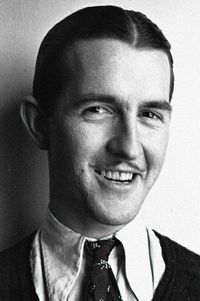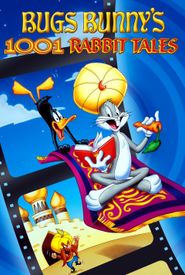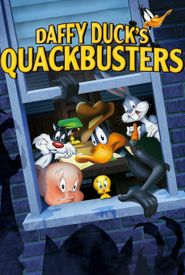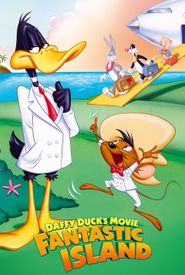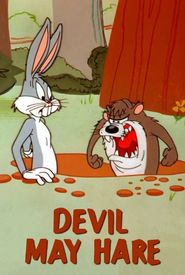Robert McKimson was born on October 13, 1910. He began his career in animation as an artist for Walt Disney's Oswald the Rabbit in 1928. After Disney shifted focus to Mickey Mouse cartoons, Hugh Harman & Rudolph Ising left to Warner Brothers to direct and co-produce cartoon shorts, along with producer Leon Schlesinger. McKimson was one of the many artists who followed.
During his tenure at Warner Brothers, Robert McKimson developed into one of the most gifted artists ever. He worked under nearly all the major WB directors, including Hugh Harman & Rudolph Ising, Friz Freleng, Frank Tashlin, Chuck Jones, Tex Avery, and Bob Clampett. McKimson's drawing talents truly blossomed under Clampett's supervision.
McKimson was responsible for developing Bugs Bunny's popularity during the 1940s. Between 1942 and 1943, Bob Clampett gave McKimson a Bugs Bunny modeling assignment, which became the basic Bugs Bunny model for all Warner Brothers animators. The models are still in use today. He also designed the familiar design in which Bugs Bunny leans on a tree while eating a carrot, which was originally displayed at a Los Angeles department store for a holiday sale.
McKimson finally got his chance to direct in 1943, with the WWII short "Return of Mr. Hook, The". His premiere short, "Daffy Doodles", was released in 1946. His earlier supervising efforts were influenced by Bob Clampett, the last director he worked for. During his earlier directing efforts, Robert McKimson's brother, Charles McKimson, became his leading animator, who had previously worked at Warner Brothers as an animator under Tex Avery's supervision.
Thomas McKimson, Robert's second brother, was also an animator for Warner Brothers, mainly under Bob Clampett's supervision. Drawing had apparently run in the McKimson family. As director, Robert McKimson was responsible for the creation of such WB characters as Foghorn Leghorn, Barnyard Dog, Hippity Hopper, Bobo the Elephant, Tasmanian Devil, Sylvester Jr., and Speedy Gonzales, and helped develop the personality of other characters like Bugs Bunny, Daffy Duck, Porky Pig, and Elmer Fudd.
He only directed two Oscar-nominated toons; "Walky Talky Hawky" (1946),and "Tobassco Road" (1957). Robert McKimson's supervising success was partially because of the writing efforts of Warren Foster. However, when Foster was placed under Friz Freleng's writing unit in 1956, McKimson's writing unit was replaced by Tedd Pierce. That was when his supervising talents began to slip.
In addition, he lost all his original animators, including Charles McKimson. Robert did some of the animating under his supervision for a while between 1955 and 1956, until he got a new team of directors, which completely changed his stylization. Along with the change of writers and artists, Robert McKimson soon developed a "squarer style", which from that point on scarred his cartooning career as his quality began to fall behind the other WB directors.
The close-up of the original Warner Brothers' Cartoon Studio in 1963 was when Robert McKimson's career started to hit rock bottom. When the original WB Cartoon Studio closed, Friz Freleng quickly teamed up with David DePatie to form DePatie-Freleng Enterprises, in hopes of creating more WB cartoons. McKimson naturally tagged along, directing most of the less popular toon shorts of the 1960s, even the ones under Billy Hendrick's WB production in the latter of the 60s after DePatie-Freleng left WB in 1967.
After the Warner Brothers cartoons' second diminishment in 1970, McKimson returned to DePatie-Freleng Enterprises to direct some Pink Panther cartoons. At that point, the careers of a lot of the remaining cartoonists, whom were once well-known during the 40's & 50's, had been detracted as well. In 1977, on his 66th birthday, McKimson had a doctor's appointment, when he was listed in good health. He decided to celebrate that evening.
Unfortunately, while he was dining at a Burbank restaurant with Friz Freleng and other colleagues, Robert McKimson died of a massive heart attack (known as coronary). This came only years before his cartoons became part of the Warner Brothers' 'Looney Tunes renaissance' of the 1980s. Robert McKimson's cartooning career since its decline in the early 1960s, and his relatively early death in 1977 had mostly been pushed in the background from true recognition. But among many of today's cartoonists, McKimson still remains one of the most influential artists ever.
